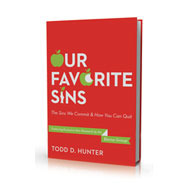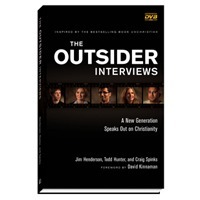Todd D. Hunter's Blog
September 16, 2025
Hello world!
Welcome to WordPress. This is your first post. Edit or delete it, then start writing!
January 18, 2021
MLK: A Model of a Christlike Heart
On January 30, 1956, an unidentified person(s) drove up to the Montgomery, Alabama home of Martin Luther King, Jr., and threw a bomb on his front porch. King was speaking to a packed church at that moment. King’s wife, Coretta, and their seven-month-old daughter, Yolanda, were inside. Thankfully, though the home was damaged, his family was not harmed.
Civil rights tensions were already thick in the air when the bomb went off, and the explosion flung wide shrapnel of further anger and fear. The explosion was a flashpoint that would test anyone’s heart. Specifically, it tested King’s passionate commitment to non-violence.
News of the bombing spread quickly, and an angry crowd soon gathered outside King’s home. A matter of minutes after his home had been bombed, standing feet away from the site of the explosion, King preached non-violence. “I want you to love our enemies,” he told his supporters. “Be good to them, love them, and let them know you love them.”
Jesus said: “Out of the abundance of the heart, the mouth speaks” (Luke 6:45). What kind of heart are we to imagine King had? After such an attack, from what quality of being came instantaneous words of love and goodness?
We live in a moment in which our country seems to be exploding. We need King’s example of Jesus’ teaching more than ever. It is so easy for me to feel self-righteous anger. Loving, forgiving and working for the good of people I would rather simply condemn is much harder.
This doesn’t mean we don’t name things as they are. It means that we want our reactions to people to be Christlike. On MLK Day, I give thanks for the model of his Christlike heart, from which flowed remarkable generosity.
We need it today. May understanding, forgiveness, love and peace flow. May it begin with me. May it spread to every broken relationship and among political rivals. Perhaps forgiving each other will be the first step to hearing each other, to then finding common ground, working toward King’s vision of beloved community constituted by agape love and thus marked by non-violent means for resolving conflict.
In honor of Martin Luther King, Jr., today let’s each choose one person to forgive and then seek their good.
To learn more about King’s legacy, read his niece Alveda King’s reflections on his life.
The post MLK: A Model of a Christlike Heart first appeared on Todd Hunter.January 15, 2021
Nationalistic Violence: Not in the Name of Jesus
The fair-sounding [seemingly pure] word “Patriotism” is often used as a cloak for the basest and meanest conduct.—Reuben A. Torrey, first Dean of Biola University
I am thankful that President Trump has called for the end of violence. Sadly, though, the attack on the Capitol may not be the end of extremist violence. The QAnon conspiracy is growing in the aftermath of the uprising. Therefore I would like to speak into these troubled times by commenting on the last week and suggesting a way to think about the weeks to come.
Not in the Name of Jesus
Insurrection is always out of bounds. Done in the name of Jesus, it is especially grievous and anti-Christ. The extremists who attacked the Capitol do not walk in The Way of Jesus. Yet, violence was cloaked in his name as insurrectionists bore crosses, pictures of Christ in a MAGA hat, JESUS SAVES banners, and other corrupted markers of faith.
The Church cannot get more deceived, divided, or violent than this: a group of Christians, thinking they were doing the right thing, stormed the capital while men and women chanted “Hang Mike Pence” in the name of patriotism. It was among the most egregious, anti-Christian events of my 45 years as a Christian leader.
The violent and the hateful can never be associated with the person or aims of Jesus. Christlikeness, which sets aside unrighteous anger, would never engage in the name calling that is common in our civil discourse, much less murder (Matthew 5:21, 22).
Denouncing Violence and Shaping the Future
I do not like making public statements. I have rarely done so in my career, but the Church needs to speak up in this moment. We do so not as an institution scrambling and elbowing for a place at the table of political power, but as a neighborly example of the non-violent ethic of the New Testament.
We can start by saying this: politically motivated violence does not adhere to the teachings and vision of Jesus and Paul, of scripture. Nor does it fit with the iconic Christian leadership of Martin Luther King, Jr., who pursued agape love for the sake of all, achieved via non-violent, direct action.
I want to steer the Church toward agreement that we must never use violent means of achieving even what one may contend to be godly ends. Violent means only foment even more violent ends, creating a more violent world.
Without qualification or deflection, we must denounce all acts of violence committed in the name of Jesus and reject any further violence in his name.
Christlike Thinking About Current Political Violence
The ongoing investigation into the violence at the Capitol is yielding horrific information. “Murder the media” was scratched into a set of doors. Some in the crowd tied a camera cord into a noose. Here is the root problem with such anti-Christ thinking and action: There is no such thing as The Media. There are only people: reporters, on-air talent, lighting and sound personnel, producers, directors and writers. Murder them? There is no situation in which that is proper behavior for a follower of Jesus.
Christians can in good conscience have different opinions about the State’s role in governing morality and about the nuanced policies of tax codes, gun rights, immigration, and environmental care. There are plenty of Christlike ways to advocate for change: write, speak, campaign and engage in non-violent protest. But there is no Christian ethic that supports violently turning over an election or calling for the murder of our perceived political enemies. Last week’s event at the Capitol ought never to bear the name of Jesus.
There is a deeply spiritual Christian tradition that knows all about what I am saying. For decades, the historic Black Church and other churches led by people of color have cried out about the injustices occurring in our nation. Oftentimes their cries fell on deaf ears. This is the time for the Church to be a prophetic voice speaking up on issues that affect fellow image bearers. It is also the time for the Church to pause and listen to what their Black and Brown brothers and sisters have been proclaiming all along.
More Violence?
Followers of Jesus: please do not engage in or encourage any forthcoming violence. Do not be present at any violent event. Do not support those who incite, stir up, or organize violence. It will destroy your soul and our common testimony concerning Jesus. Engaging in violence is only sowing to the wind; it surely reaps the whirlwind.
The Christian message is not “Stand back and stand by,” but:
In humility value others above yourselves,not looking to your own interests but each of you to the interests of the others… No one should seek their own good, but the good of others (Phil. 2:4, 1 Cor. 10:24).
You Are Already Safe
America may be falling apart, but the kingdom of God is not. God’s kingdom is never at risk. While that is true, it is also important to recognize that our brothers and sisters in marginalized people groups are likely experiencing the events at the Capitol differently than those in the majority. They know by experience that very real threats exist in our nation that impact those Jesus told us to care for: the immigrant, the orphan, the widow, the oppressed.
All of us are invited to place our lives in Jesus and to follow him into kingdom living. There we will always be safe, never at risk, living an undying life, being human as God intended. A lovely upside to all that is that you will never have ears to hear a calling to harm others in the name of Jesus. Rather, you will have genuine freedom and an inner stance from which to love and serve all others (Galatians 5:13).
Photo credit: Religion News Service
The post first appeared on Todd Hunter.February 1, 2013
A Lenten Reflection 2013
As we enter into the Lenten season, I want to introduce you to my newest book – Our Favorite Sins: The Sins We Commit and How You Can Quit. It may be a suitable Lenten reader for our churches. I would be delighted if for Lent this year you would suggest OFS to your congregation. If you would like a copy of the book, email me at this address and I’ll get it to you ASAP. Below is an introduction to the book.
The big idea of the book is this: most people, myself included, struggle every day with temptation. All too often, we fail and fall, and some of us are at our wit’s end, utterly defeated, living with perpetual guilt and shame. We are all familiar with not only the words but also the feeling expressed by the apostle Paul: “O wretched man that I am! Who will deliver me from this body of death?” (Romans 7:24 NKJV).
The big contribution, I hope, is this: my publisher, Thomas Nelson, and I hired the Barna Group to do exclusive, ground-breaking research of all Americans, not just churched people, on the topic of temptation. The survey reveals how Americans think and act when faced with life’s various enticements. Here is a couple startling findings: 50% of Americans simply don’t know what to do about temptation. Secondly, 59% of Americans say that the last time they were faced with temptation, they did nothing specific to avoid giving in to it.
This book is also distinctly Anglican. There are chapters describing how liturgy, sacrament and lectionary empower a life in the Spirit that strengthens us against temptation. In addition, every chapter ends with an exercise taken from the Book of Common Prayer or Celtic Daily Prayer.
Dallas Willard’s forward to the book may give you an additional feel for what I am up to:
Walking out of our favorite sins makes perfect sense after you have done it. But you need a biblical, psychologically sophisticated, pastoral guide to get you to that point. That is Todd Hunter. Sin is basically stupid and repulsive. But when you are in its snare – few aren’t – you can’t see that. The best thing about Our Favorite Sins is, it really does enable you to see sin for what it is. And then it gives small doable steps you can take to walk away.
Do you want to quit? You can. Just meditatively study this book and put it, gently but persistently, into practice. Don’t worry about perfection. If you ever get there, it will be safe for you. It’s when you aren’t there that it is dangerous – deadly! This book will do wonders for serious disciples of Jesus, and it would be great for small groups. But we’re talking world revolution here, which is exactly what Jesus had in mind: “Teach the disciples to do everything I said.” What else is there to do?
In the book I help readers see and believe that falling for temptation isn’t inevitable. We don’t have to lose the fight. In fact, we can win if we understand the root of the problem and what Christians have done from the beginning to beat it. Our Favorite Sins seeks to shine a light in our lives’ dark corners and reveals the time-tested methods, ancient practices, for getting victory over sin.
Endorsements for the book have been a great encouragement to me:
“The most deceptive part of sin is its ability to blind us to its reality in our lives. Todd Hunter offers sane and helpful guidance about the way out.”
-John Ortberg, senior pastor, Menlo Park Presbyterian Church
“Todd Hunter gets it: Nothing should stand in the way of full devotion to Christ.
—Bill Hybels, senior pastor, Willow Creek Community Church
“This book speaks powerfully to some of my own deepest spiritual struggles. In offering candid, informed counsel on ‘our favorite sins,’ Todd Hunter has given me, and multitudes like me, an important spiritual treasure.”
—Richard Mouw, president, Fuller Seminary; author of Praying at Burger King
“One of the most persistent and least talked about questions for Christians are these: If sin is so bad, then why are we drawn to it? If it wrecks human lives – which it does, every time – then what is so appealing about its temptations? Is there any help for those who want to find freedom from sin? Todd Hunter has delved deeply into this matter, and in this excellent and accessible book Hunter offers us not only insight into why we sin, but how we can begin to turn from its false promises. The body of Christ needs this book.”
—James Bryan Smith, author of The Good and Beautiful God
“Todd Hunter draws on ancient practices in order to provide insight and strategy to face temptations in our lives. This book will help you think about how you can not just ask God to deliver you from temptation but be intentional about finding a way of escape.”
—Margaret Feinberg, author of Scouting the Divine and The Sacred Echo
“Todd Hunter is the only man I know who can talk about sin with an appealing easiness and, at the same time, with an equally appealing candor. I can almost guarantee that you’ll enjoy his conversation and end up very grateful for having had the chance to read it.”
—Phyllis Tickle, author of The Great Emergence
“One of the greatest intellectual achievements of the Christian tradition is its notion of original sin. People will make a mess of anything, of everything. Todd Hunter has gifted us with an inspiring book that suggests habits of holiness for everyday living and moving and having our being amid human suckitude and stinkiness. But most of all, Bishop Hunter gives us hope that “where sin abounded, grace did much more abound.”
—Leonard Sweet, best-selling author, professor, and chief contributor to sermons.com
“In Our Favorite Sins, Hunter combines modern language and research with classic understanding in providing a fresh look and at our most deadly sins. His suggestions for ‘ancient and fruitful’ practices will be very helpful to many in reorienting desire toward living life with God.”
—Gary W. Moon, Ph.D., executive director, Dallas Willard Center
“It is so easy to miss our potential in life due to getting caught up in our weaknesses and temptations. Todd helps us understand not only how to recognize the subtle sins that can distract us, but how to be like Jesus when facing them.”
—Dan Kimball, author of They Like Jesus But Not the Church
Peace,
Todd Hunter
____________________
PURCHASE: Kindle Version & Print Version
May 9, 2012
A New Canonical Home for Todd Hunter and C4SO
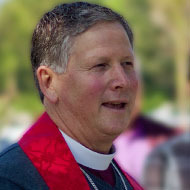
Todd Hunter
May 4, 2012
Over the past many months there has been much talk, publicly and privately, about who each of us will dance with in terms of Anglican connections. I have been slow in this process, like an awkward junior-high kid at his first dance, struggling to discern direction from God. I realized in the past day or so that I was asking the wrong question, that jurisdictional issues were not on the top of God’s mind for me.
Apparently I needed to seek God regarding more fundamental issues, matters of first cause. In so doing I realized that I am to “dance with who ‘brung’ me”— Unity and Mission. I brought Mission with me to this dance. We have been “friends from childhood”. When I walked across the dance floor and was introduced to Anglicanism three years ago I was told repeatedly that we were all working toward one, unified, missional, kingdom-oriented, Spirit-enabled Anglican church in North America. I took that vision into my heart and have pondered it since.
Today I am pleased to announce that I have brought unity and mission back together through the up-coming re-launch of Churches For the Sake of Others.
This morning I had warm and collegial conversations with Archbishop Bob Duncan, Bishop Chuck Murphy and Bishop Terrell Glenn. I articulated for each of them my vision of C4SO becoming a servant to all the various Anglican entities within North America. C4SO will happily plant churches in partnership with PEARUSA, TheAm and the ACNA.
I will carry out this work under the canons of the ACNA as a special bishop given a specific task under Archbishop Duncan.
Attached is my best attempt today at some anticipated questions. I will soon go to Pittsburgh to clarify as many small details as possible. But before we get to that, I’ve got a couple of related issues I would like to make public.
First, I have written Archbishop Rwaje asking his forgiveness for my part in actions, attitudes or communications that were hurtful to him or to my brother bishops in Rwanda. His Grace responded with a most gracious letter, forgiving me, stating his love for me, blessing me and releasing me to ++Duncan.
Second, a word about Chuck Murphy. In spite of our recent disagreements, I have respect for the positive aspects of Chuck’s leadership over the years. I refuse to be dismissive of anyone, to allow “dissing” in my heart at all. As my friend, Dallas Willard, has taught me over the past twenty years, “Our projects are not God’s projects. We are God’s project. The only thing God and we get out of this life is the kinds of persons we become as we execute our various tasks of ministry.” I am grateful to Chuck for his acceptance of me into the Anglican world, his investment in C4SO and his willingness to have a cooperative organization-to-organization relationship between theAM and C4SO.
April 25, 2012
Interview with Todd Hunter
In a recent trip to Virginia Beach, for a Telos Event, Todd Hunter sat down for a live interview at Regent University. Todd talks about his latest book “Our Favorite Sins”. In addition, he shares about church planting and answers questions from students in attendance.
February 11, 2012
Our Favorite Sins – NEW
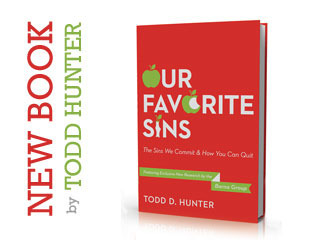 THE ESSENTIAL GUIDE FOR BEATING TEMPTATION
THE ESSENTIAL GUIDE FOR BEATING TEMPTATION
"Todd Hunter is the only man I know who can talk about sin with an appealing easiness and, at the time, with an equally appealing candor. I can almost guarantee that you'll enjoy his conversation and end up very grateful for having had the chance to read it."
- Phyllis Tickle, author of The Great Emergence
With more than thirty years of pastoral experience, Todd D. Hunter knows that most people – himself included – struggle every day with temptation. All too often, we fail and fall, and some of us are at our wit's end, utterly defeated. What do we do to get a grip on the sin in our life and live like God wants?
Falling for temptation isn't inevitable. We don't have to lose the fight. In fact, we can win if we understand the root of the problem and what Christians have done from the beginning to beat it. Our Favorite Sins shines a much-needed light in our lives' dark corners and reveals the time-tested methods for getting victory over sin.
August 9, 2011
TELOS Events – Launched
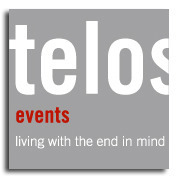 The ministry of Telos emerges from the loves and passions of Todd Hunter: helping seekers of all kinds—churched or unchurched—hear the Gospel afresh and to then describe the practical implications of rehearing of the Gospel for contemporary evangelism and spiritual formation (discipleship/followership of Jesus).
The ministry of Telos emerges from the loves and passions of Todd Hunter: helping seekers of all kinds—churched or unchurched—hear the Gospel afresh and to then describe the practical implications of rehearing of the Gospel for contemporary evangelism and spiritual formation (discipleship/followership of Jesus).
The New Testament Greek word telos can be best described as end. But not end as in "this is the end of the bench—move over any more and you'll fall off!" But rather "the bench is finished being constructed. It is completed". That is to say the intention the Designer/God had in mind is now fulfilled. Telos also implies the purpose for which something exists. For example, a cup exists for the sake of holding liquid, water for the sake of hydration, books for the sake of reading. From telos, we get the everyday words like ideal, intention, purpose, function, or goal.
It has been well established that there's a certain should-ness to life—that all things exist in direct alignment to their intended functions. This seems to be an obvious fact. Who can deny the frustration of a malfunctioning printer, or a car out of alignment? Or, who would fail to see the goodness of a well-functioning air bag?
But, from the point of view of Divine Intention, what is the telos for human life—for followers of Jesus? To what end are we to live? Just how should one live to reach that end? Philosophical and spiritual theories range from pleasure-centered hedonism to duty-bound and rigid ethics within religious legalism. We need a Divine-telos-based, simple and doable way forward. Here is my idea: Jesus, Our Master….we, his Apprentices.
One thing we know. Even a cursory review of Jesus' life models for his followers would show two central practices: a journey inward, and a journey outward.1 The former reveals the path to our spiritual transformation into Christlikeness. It suggests Christian spiritual exercises such as rest, silence, solitude, petition, friendship, self-control, worship, study and even leisure. The later reminds us that the pursuit of piety is never selfish, but always for the sake of others. These Jesus-traits are made manifest by his constant and loving care for others—his witness to God and God's kingdom; his compassion, generosity, kindness, healing, deliverance, intercession, and sacrifice.
In short, the life of Jesus demonstrates a distinct pattern. Within his daily life we see spiritual rhythms and routines, directing and making possible both the inward journey of discipleship, and the outward journey of evangelism and care-for-the-other.
Telos Events aim to follow this Jesus-pattern, ultimately focusing our activities on two worthy ends:
DISCIPLESHIP: THE CHRISTIAN JOURNEY INWARD
EVANGELISM: THE HOLISTIC JOURNEY OUTWARD
For more information about TELOS Events.
December 23, 2010
The Accidental Anglican – NEW
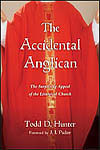 The Accidental Anglican
The Accidental AnglicanTodd D. Hunter foreword by J. I. Packer
About the Book
Many are longing for historical connectedness and for theology that is "not tied to the whims of contemporary culture, but to apostolic-era understandings of Christian faith and practice." They also yearn for rhythms and routines that build spiritual health. Still others are responding to a call to participate in worship rather than merely sitting back and looking at a stage. Liturgy offers all of this and more.

J.I. Packer & Todd Hunter
In this book Todd Hunter chronicles his journey from the Jesus People movement and national leadership in the Vineyard to eventually becoming an Anglican Bishop. Along the way he explains why an evangelical Christian might be drawn to the liturgical way. Curious about the meaning of liturgy? Come and discover what may be waiting for you there.
"There is something in the air today, something in the spirit of our age, something in the Spirit that is leading thousands, maybe millions, of people to reconsider liturgical forms of worship. Liturgical seekers cherish the confidence that comes from historical connectedness, from theology that is not tied to the whims of contemporary culture but to apostolic-era understandings of Christian faith and practice."
July 1, 2010
The Outsider Interviews – DVB
Christianity has an image problem. Along with Jim Henderson and Craig Spinks, I went on a quest to get the stories behind the statistics they read in unChristian by David Kinnaman and Gabe Lyons. In this DVB (DVD + Book) you will hear the stories and read our interactions around the stories. Available on Amazon.com July 1st!
Todd D. Hunter's Blog
- Todd D. Hunter's profile
- 13 followers



